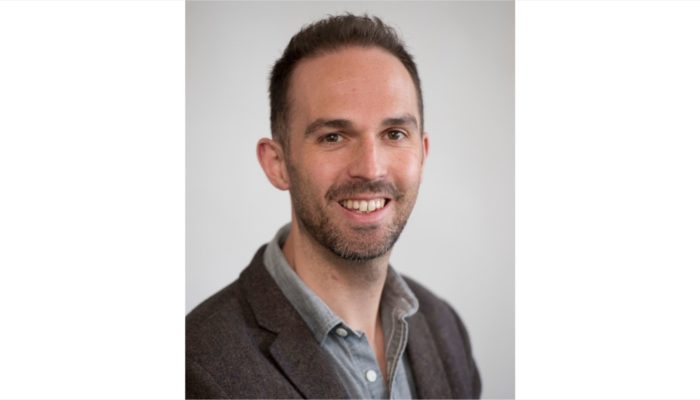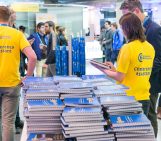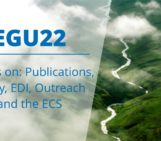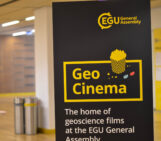
Hi Martin. Thank you for joining me for this interview! To start, could you please tell our readers a bit about yourself and your research interests?
I’m a space plasma physicist at Imperial College London, studying how the interaction between the solar wind and our magnetosphere leads to a huge amount of dynamics and waves that play a role in space weather. I’m also the Chair of EGU’s Outreach Committee and have been very active in outreach, media, and public engagement work throughout my career. Also, in a past life, I was a radio DJ for the national UK radio station Kiss FM.
The space sciences deal with phenomena more removed from people’s terrestrial experiences; space weather, for example, is often not the first thing people think of when talking about natural hazards. How do you engage audiences when approaching them with topics they may be less familiar with?
The problem with most of the phenomena related to space weather is you simply can’t see them. Other than the Sun and the aurora, both of which are beautiful, everything else is invisible to us. That’s why, unlike astronomers, space physicists rely on sending satellites to locations in space and measuring what’s actually there through time-series. It’s very hard to get people excited about wiggly line plots! That’s why I’ve mostly used sound to convey my science –sonification of the satellite data we collect can make the inaudible waves accessible to people. Not only does this give them a sense of the activity going on in space, it challenges the misconception that space is completely empty.
Your scientific outreach projects often employ different media from films to festival sets, drawing upon a vibrant career ranging from your scientific research to your time as a DJ. How do you approach communicating science using more unconventional media?
I’m keen to reach outside of my own echo chamber. When we put on outreach events, often we’re attracting those that are already interested in science and on board. But science is for everyone and funded by everyone, so really we should be making an effort to connect with those that don’t necessarily seek it out. That’s why I’ve tried to find ways of making my science interesting to people in other ways. The starting point is often: what’s a way I can hook people into what I do without relying on the science itself? That way my science has been used as artistic inspiration, a lens to explore fiction, or an analogy on how to DJ, as a few examples.
When implementing outreach programmes for scientific outreach, what challenges should people be wary of when trying to achieve long-lasting impact?
Long-lasting impact is difficult. Often we see a group of people for a very short amount of time and that’s it. We need to be more realistic about what we can achieve in that time. Am I going to fundamentally change their view on the world or themselves as a person in that time? Probably not. That’s why, particularly when it comes to working with school children, I’ve been pushing for more extended programmes over the course of months seeing the same groups. Only by becoming part of their learning ecosystem are you likely to have truly lasting impact. Don’t also forget the massive influence that parents and teachers have on children too; you should be working with them also. Even if long-term programmes aren’t practical for you, just by considering these factors you might be able to boost the impact you can have.
Finally, what’s next on the horizon for you?
I’ve been working with colleagues in the USA to launch a new NASA-funded citizen science effort which will enable the public to help us identify waves in our magnetosphere by listening to the data. Over the past couple of years we’ve been developing a user-friendly interface for this and going through testing, and it should be ready to launch in April 2023. I’ve also been creating a new space careers resource aimed at 7-14 year-olds, which represents the diversity of career paths available in the space sector and makes them relatable through the personal qualities those jobs need. We’ll be taking them to events across the UK throughout 2023.




